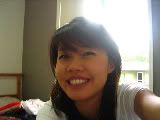

|
The dancer  Joyce Here! I am currently in the Bachelor of Arts in Education Majoring in English Language and I also take Art and Math
Joyce Here! I am currently in the Bachelor of Arts in Education Majoring in English Language and I also take Art and Math
previous posts past February 2009 March 2009 links .:Aishah:. .:Alen:. .:Bee Bee:. .: Haliah:. .:Hui Ling:. .:Ivan:. .:Kai Ling:. .:Marie:. .:Mei Chen:. .:Natalie:. .:Nazeha'a:. .:Pavani:. .:Sangeetha:. .:Shariffah:. .:Syazwani:. .:Zoie:. .:Jess:.
Credits Base code:OHsaygoodbye Image: Kristi |
Tuesday, February 3, 2009 ( My Thoughts on Literacy @ 1:38 AM ) “What is Literacy?” According to traditional definitions, “literacy” is the ability to read, write and use language effectively. However, it has since evolved and the definition proposed by the United Nations Educational, Scientific and Cultural Organization (UNESCO), states that, “Literacy is the ability to identify, understand, interpret, create, communicate, compute and use printed and written materials associated with varying contexts. Literacy involves a continuum of learning to enable an individual to achieve his or her goals, to develop his or her knowledge and potential, and to participate fully in the wider society.” UNESCO Literacy has moved beyond the traditional contexts of being able to simply read, write and use language effectively. Instead it requires a literate person to be able to communicate his ideas efficiently in various contexts and at an adequate level where he can make constructive contribution to his society. Scribner views “literacy” from three different angles and expresses it with three metaphors, “Literacy as Adaptation”, “Literacy as Power” and “Literacy as a State of Grace”. The literacy rate in Singapore stands at 93% (2000 census), “literacy” defined in the traditional sense, “the ability to read and write”. Viewing our education system from Scribner’s lenses, I feel that all three metaphors are present in the Singapore education system. “Literacy as a State of Grace” best describes the view adopted for the operation of our current education system. Schools and teachers are encouraged to practice greater diversity and flexibility in our teaching approaches. There have been many new introductions to allow students to explore various options, e.g. the International Baccalaureate (IB), Integrated Programme (IP), Sports School, School of the Arts (SOTA), special entry into Secondary schools and tertiary institutions based on achievements in the Arts or sports etc. Schools have begun their holistic development of an individual whereby students are exposed to broad range of experiences in both the academic and non-academic areas. This seems to suggest that it is important that “the literate individual’s life derives its meaning and significance from intellectual, aesthetic, and spiritual participation in the accumulated creations and knowledge of humankind, made available through the written word” (Scribner, 1984: 77). However, when we look at the Desired Outcomes of Education, the view, “Literacy as Power” jumps out straight at me. “The Singaporean - an Individual, a Citizen” Education is to build and develop an individual however, it is so that this individual can contribute back and advance our society. “In turn, we have obligations and responsibilities to the community. Therefore, our schools will teach our children to identify Singapore as our home; a home to live in, strive to improve, and defend.” This is an elaboration of one the desired outcomes of education as shown below, “An educated person is also someone who is responsible to his community and country.” (MOE’s desired outcomes of education) The explanation fully showcases the emphasis on the “relationship between literacy and group or community advancement” as mentioned by Scribner. There seems to be some overlap in the views and positions adopted by Singapore. I suppose it is because education encompasses the development of an individual on many levels. For the successful development of Singapore and its citizens, it requires literacy to perform functional daily tasks; ability to communicate effectively to do business and trade, contribute to our society and propel our economy, and then work towards being “cultured” citizens. http://www.indexmundi.com/singapore/literacy.html http://www.moe.gov.sg/education/desired-outcomes/ 0 comments |